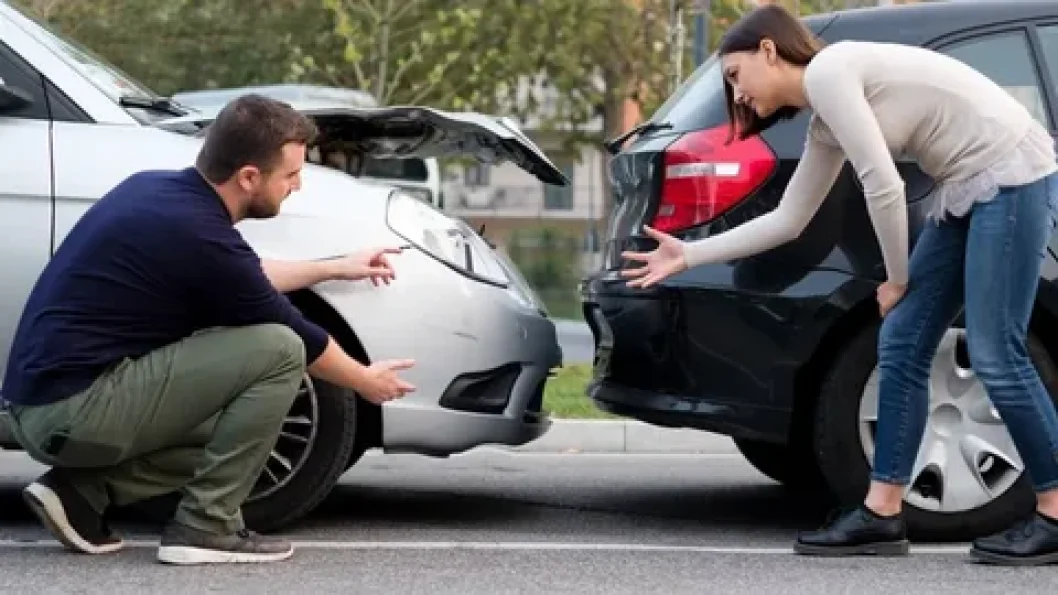Introduction
Car accidents are stressful enough without the added confusion of navigating the car accident claim process. Knowing how to file a claim and understanding your rights is essential to making sure you receive the compensation you’re entitled to. In the UK, the process might seem daunting, but it’s quite straightforward when broken down. Whether you’re dealing with a car insurance payout, vehicle damage, or personal injuries, following the correct steps can ensure you avoid unnecessary complications.
From filing a claim to understanding how fault is determined, this comprehensive guide covers everything you need to know about the car accident claim process in the UK. Whether you need advice on documentation or what to do if your claim is denied, we’ve got you covered.
What to Do Immediately After a Car Accident in the UK
Right after an accident, the first thing you need to do is make sure that everyone is safe and seek medical attention if necessary. Auto accident compensation depends greatly on how well you handle the situation in the first few minutes. Once safety is ensured, exchange details with the other driver(s). You should provide your insurance information, driver’s license number, and car registration details. Gathering evidence, like taking photos of the scene and noting down any witness information, will prove invaluable later.
UK law requires that serious accidents be reported to the police, especially if there are injuries or significant damage. Reporting the accident to your insurance company promptly is critical. Accident claim filing should be done within a reasonable time frame, and failing to report within seven days may result in a claim rejection. Therefore, speed and accuracy are your best tools.
When and How to Notify Your Insurance Company
Once the initial accident scene is handled, contact your insurance company immediately. This is the first step in the auto accident claim process. Your insurer will ask for all relevant details of the accident. Make sure you have the following information ready: your policy number, car registration, details of the other driver, and any photos or evidence collected.
While this may seem like a daunting task, it’s crucial to remain calm and provide accurate information. If the accident was your fault, the claim investigation will proceed differently than if you were not at fault. However, all details you provide will be crucial for the insurance adjuster role in determining how much compensation you’re entitled to.

How Fault is Determined in the UK Car Accident Claim Process
In the UK, fault is determined using the Fault Determination Rules, a set of guidelines that insurance companies follow to assess which party is responsible for the accident. Even if it seems like an obvious outcome to you, these rules help standardize the process. Factors like road conditions, driver behavior, and witness statements play a large role. Interestingly, UK law allows for shared fault, meaning that more than one party can be partially at fault.
For example, if both drivers were speeding, both might share the blame. Being 50% or more at fault will have a direct impact on your car insurance payout. Your premiums might rise, and if you’re found at fault, you may have to pay more out-of-pocket through a deductible. Understanding the accident liability determination process is essential for preparing for what comes next.
Required Documentation for Filing a Car Accident Claim
Documentation is the backbone of any successful car accident claim. The more detailed your records, the smoother the claim settlement process. To start, you’ll need to submit your insurance policy, accident details, witness statements, and police reports. It’s also a good idea to include any photos or videos of the accident scene.
In cases of personal injury, medical reports play a key role in determining compensation. These documents will help the insurance company assess the total costs of vehicle repairs and medical expenses compensation. Whether it’s minor injuries or major vehicle damage, documentation is your best defense in ensuring a quick and fair payout.
| Required Documents | Purpose |
|---|---|
| Police Report | Verifies accident details and legal standing |
| Insurance Policy | Confirms coverage for claims |
| Witness Statements | Provides unbiased accounts of the event |
| Medical Reports | Justifies personal injury claims |
| Repair Estimates | Validates cost of vehicle repair or replacement |

Understanding Compensation in the UK Car Accident Claim Process
When it comes to compensation, understanding what you’re entitled to is vital. Compensation can cover a wide variety of costs, from vehicle collision claims to lost wages and medical bills. In the UK, Direct Compensation policies allow you to claim for damages directly from your insurer without waiting for a third party to admit fault. However, the amount of compensation you receive will largely depend on the extent of fault determined by the claim investigation.
For example, if you’re found to be 25% at fault, your compensation might be reduced by 25%. Additionally, your insurer will look at the cost of repairs, car damage evaluation, and whether your vehicle is repairable or should be written off. In some cases, claimants may receive compensation for personal injury lawyer consultation fees if the claim is disputed.
What Happens If Your Car is Written Off?
A car being written off can feel like a worst-case scenario, but the process is designed to ensure fair compensation. If your vehicle is damaged beyond economic repair, your insurance company will declare it a total loss. At this point, the collision claim procedure kicks in, and your insurer will offer a car insurance payout based on the market value of your car before the accident.
However, many drivers find this valuation to be lower than expected. If you feel that the payout doesn’t reflect your vehicle’s true worth, you can challenge the insurance company’s assessment. This might involve submitting evidence like recent repair invoices, photographs of your car’s condition before the accident, and listings of similar cars on the market.
What to Do if Your Car Accident Claim is Denied
Unfortunately, some claims are denied. This can happen for various reasons, such as insufficient documentation, failure to report the accident on time, or disagreements over fault. If your accident claim denial occurs, the first step is to contact your insurance adjuster to understand why the claim was denied.
In the UK, drivers also have the option of escalating the dispute to the Financial Ombudsman Service, which handles complaints against insurance companies. If you still disagree with the outcome, you may seek legal advice and consider hiring a car accident lawyer to help you navigate the legal process in accident claim disputes. Having the right legal support can increase your chances of a successful outcome, especially if you believe your claim was unfairly denied.
Final Thoughts on Navigating the UK Car Accident Claim Process
Navigating the car accident claim process in the UK doesn’t have to be difficult if you understand the steps and gather the right information. Knowing how to report the accident, provide accurate documentation, and follow up with your insurer will ensure you receive the compensation you’re entitled to. Whether you’re dealing with vehicle damage, medical expenses, or a personal injury claim, staying informed is the best way to protect your rights.
If your claim is denied, don’t lose hope. You can challenge the decision, gather additional evidence, and escalate your case to ensure that you receive a fair resolution. Remember, understanding your insurance policy and the claim settlement process is key to successfully navigating this stressful time.
Frequently Asked Questions (FAQs)
How long does it take to process a car accident claim?
The car accident claim timeline can vary, but most claims are processed within a few weeks. However, if there are disputes over fault or documentation, the process can take longer.
What should I do if the other driver doesn’t have insurance?
In the UK, if the other driver is uninsured, you can claim through your policy’s Uninsured Motorist Coverage. This ensures you are compensated even when the other party cannot cover the costs.
Can I claim for minor injuries after a car accident?
Yes, minor injuries are often covered under personal injury claims. Make sure to seek medical attention and obtain a report to submit as part of your claim.
What should I do if my insurance company rejects my claim?
If your claim is rejected, contact your insurance company for a detailed explanation. If you disagree, gather additional documentation and file a complaint. You can also seek help from the Financial Ombudsman or a lawyer.


